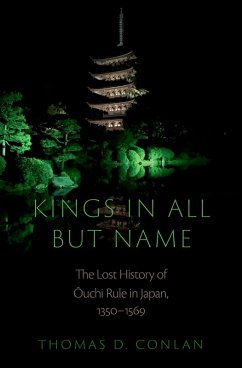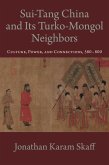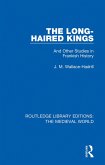In the sixteenth century, members of the Ouchi family were kings in all but name in much of Japan. Immensely wealthy, they controlled sea lanes stretching to Korea and China, as well as the Japanese city of Yamaguchi, which functioned as an important regional port with a growing population and a host of temples and shrines. The family was unique in claiming ethnic descent from Korean kings, and-remarkably for this time-such claims were recognized in both Korea and Japan. Their position, coupled with dominance over strategic ports and mines, allowed them to facilitate trade throughout East and Southeast Asia. They also played a key cultural role in disseminating Confucian texts, Buddhist sutras, ink paintings, and pottery, and in creating a distinctive, hybrid culture that fused Japanese, Korean, and Chinese beliefs, objects, and customs.
Kings in All but Name illustrates how Japan was an ethnically diverse state from the fourteenth through the sixteenth centuries, closely bound by trading ties to Korea and China. It reveals new archaeological and textual evidence proving that East Asia had integrated trading networks long before the arrival of European explorers and includes an analysis of ores and slag that shows how mining techniques improved and propelled East Asian trade. The story of the Ouchi rulers argues for the existence of a segmented polity, with one center located in Kyoto, and the other in the Ouchi city of Yamaguchi. It also contradicts the belief that Japan collapsed into centuries of turmoil and rather proves that Japan was a stable and prosperous trading state where rituals, policies, politics, and economics were interwoven and diverse.
Dieser Download kann aus rechtlichen Gründen nur mit Rechnungsadresse in A, B, BG, CY, CZ, D, DK, EW, E, FIN, F, GR, HR, H, IRL, I, LT, L, LR, M, NL, PL, P, R, S, SLO, SK ausgeliefert werden.









